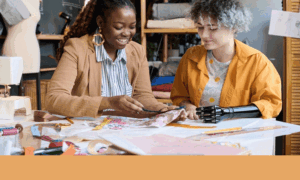 February is an important month for adults who care about young people. No, not for Valentine’s Day or President’s Day but Teen Dating Violence Awareness and Prevention Month. Break the Cycle, the national dating violence prevention leader, receives many questions during the month. The most common question is, “What can I do to prevent dating violence?”
February is an important month for adults who care about young people. No, not for Valentine’s Day or President’s Day but Teen Dating Violence Awareness and Prevention Month. Break the Cycle, the national dating violence prevention leader, receives many questions during the month. The most common question is, “What can I do to prevent dating violence?”
This can be daunting because doing something to address the question means talking about it with young people. Regardless if young people are in relationships, critical conversations about dating violence are important — even at an early age — to enhance awareness and, ultimately, to prevent abuse or violence from happening.
Contrary to popular belief, young people are involved in relationships. In fact, 72 percent of sixth graders (11- and 12-year olds) reported having intimate relationships in “Dating Abuse Statistics” by Robin Hattersley Gray in April 2014. During this developmentally critical stage, parental involvement can be vital to provide the support needed to build healthy relationships. A recent study by the Urban Institute found that although one out of 10 teens sought help, only 49 percent reached out to a parent. Whether you are a parent or a caring adult, in a small town in rural America or a large city like Miami or Chicago, there are multiple opportunities to support the young people in your life. Here a few suggestions:
Educate yourself
Teens talk about relationships with an entirely different vocabulary. This is generational. But knowing the core facts and warning signs about dating abuse you will have some foundational knowledge, even when your language and descriptions may not match.
For example, abuse can occur in several forms: physical, verbal or emotional, sexual and digital — the use of technology and digital communications — like excessive texting and demanding social media passwords, to name a few. The use of technology through digital abuse is very prominent among adolescents. Studies show that 84 percent of participants who reported digital abuse also reported examples of psychological or verbal and emotional abusive behaviors in their relationships.
Part of this preparation should also include getting to know where you can find additional resources like websites, hotlines or local community organizations. Break the Cycle has tools to help parents and caring adults prepare to open and continue the dialogue with young people in your life.
[Related: GameChangers Reaches Middle School Boys With Message About Violence Against Women]
Start the conversation
This may seem obvious, but this step can be overlooked. Timing and place are important to consider when you decide to begin the conversation. This guide provides insights for adults to talk to youth in many differing circumstances. A few places to start include:
- Make your first question a general one, rather than one related specifically to dating violence — otherwise, you might put the teen on the spot.
- Don’t assume your child is dating; start by asking what their friends’ dating relationships are like to ease into the topic.
- Ask your teen what they think makes a relationships healthy. This opens the door to break down misunderstandings but may also let you see any red flags that need to be addressed.
- Remember, you can’t know everything! Let your teen know you are willing to learn from them and respect their knowledge, just like you’d expect them to respect your own.
This will be the first of many conversations, and there may be silence, frustration, relief or a flood of information from this conversation starter. Your patience, openness and sensitivity will provide a foundation of trust for future conversations.
Understand school policy
Young people spend the majority of their time in schools, and school systems have varying degrees of support for youth experiencing relationship abuse during the school day. Administrators are beginning to include written regulations on dating violence. Some schools include a dating violence policy with their bullying regulations while others do not. Schools have a mandate to protect students, and connecting with administrators is the first step in the solution. Other simple policy fixes include: mandatory training for teachers and staff, real consequences for youth who perpetrate violence, training for student groups such as peer counselors and hosting ongoing events — during February, at prom or homecoming. These events not only educate the entire community, they also send a supportive and clear message to victims. The goal is that young people deserve caring adults who can listen and support them in and out of school.
Be a voice for change
Is there a local teen program you think could benefit from dating abuse prevention education? Are you willing to host an event for them? Is there a local domestic violence organization that works specifically with teens? Can you attend an event or volunteer a few hours? Open a dialogue with other adults, friends or parents in your community so more adults are aware of the realities and issues, and have the tools and supports they need to engage the young people in their life.
Engagement and support are the keys to adults actively participating in ending dating violence. Action on the individual, community, and societal level are the keys to create long-lasting change. We are excited that you want to be a part of the effort.
February is Teen Dating Violence Awareness and Prevention Month. Celebrate healthy relationships this #TeenDVmonth 2016 and join us in taking action.
Amy Sánchez is CEO of Break the Cycle, a national nonprofit inspiring and supporting young people to build healthy relationships and create a culture without abuse through policy and legal services, youth leadership and engagement, and technical assistance and training.
More related articles:
The Missing Component in Sex Education: Healthy Relationship Education
































